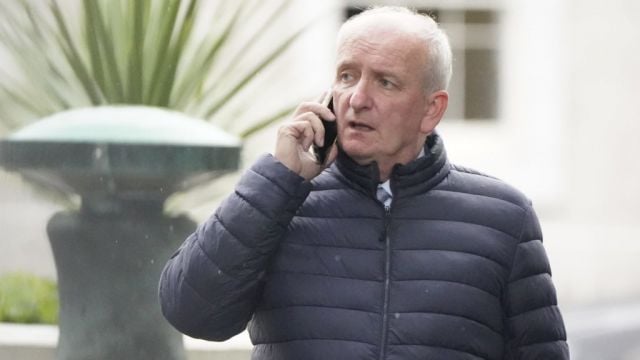The chief of the HSE has said he was “shocked and horrified” by patient management at University Hospital Limerick (UHL).
It comes amid a decision to cancel scheduled care across five hospitals and injury units in the Mid-West for an indefinite period.
Consultants have said the HSE’s decision to cancel elective surgeries, endoscopies and outpatient appointments was “unbelievable” and “one of the starkest developments in Irish healthcare in recent times”.
The University of Limerick Hospitals Group said the action was taken to manage high volumes of patients attending the emergency department at University Hospital Limerick (UHL).
Appointments and operations have been cancelled at UHL, Ennis, Nenagh, St John’s Hospital and Croom Orthopaedic Hospital in order to “de-escalate the UHL site” and “reduce wait times”, it said.
HSE chief executive Bernard Gloster said he “could not stand over the situation” he personally witnessed at UHL on Wednesday evening.
Speaking on Friday, he said: “I was absolutely shocked and horrified at the amount of patients literally waiting to be cared for and to be provided with reasonable level of care.
“There were 84 people on trolleys, 40 of them on wards. 44 in the emergency department. 58 were in surge capacity.
“And while that’s a very acceptable form of care in a pressured situation, sustainably it’s not.”
The Irish Hospital Consultants Association (IHCA) argued it will have severe knock-on consequences for patient health outcomes and expressed concern about the busier winter months.
The IHCA also said it “effectively amounts to a dereliction of hospitals across the Mid-West and those who depend upon them”.
Mr Gloster said the measures and exemptions in operation were drawn up by the clinical leaders of the hospital.
Speaking to RTÉ radio, he said: “The hospital is completely overheated, there’s a backlog of unscheduled care that has to be dealt with, and it has now got into such a circular space that all of the normal options that are available to assist are being essentially occupied by patients who require care.
“So the intervention that was made was to focus the entire hospital and community health services of the Mid-West for a period of time on urgent care.”
Asked how long he expected the intervention to last, Mr Gloster said: “I would like to think it’s in the category of weeks.”
The HSE chief also said that necessary reforms had not been undertaken at the hospital.
“The entire story of Limerick is not one of capacity.
“It is also one about how medicine and patient flow is practiced in that hospital.
“And quite frankly, this week that was not acceptable.
“And the reforms and the opportunities that are available to be utilised are not being utilized in the public interest.”







